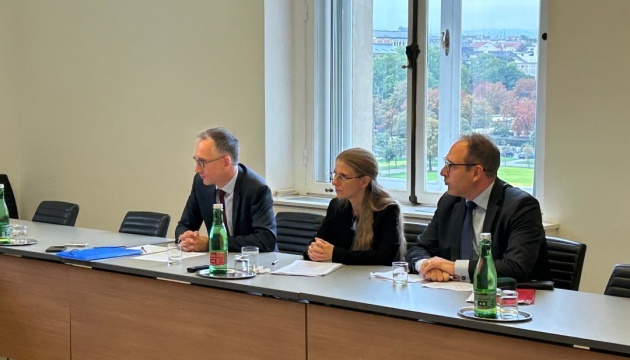OSCE: Russia Hides Sick and Wounded Ukrainian POWs from the Red Cross

The Organization for Security and Co-operation in Europe (OSCE) experts have stated that Russia is restricting the International Committee of the Red Cross's (ICRC) access to Ukrainian prisoners of war and hiding sick and wounded prisoners, showing only those who are in relatively good condition.
The Gaze reports on it, referring to Ukrinform.
Experts from the OSCE Moscow Mechanism mission confirmed serious violations by Russia in the treatment of Ukrainian prisoners of war during the presentation of their report in Vienna.
They stressed that the International Committee of the Red Cross, which under international humanitarian law is responsible for protecting the rights of prisoners, does not have full and free access to places of detention.
The Russian authorities allow rare visits, but they are subject to restrictions: the ICRC cannot visit all prisons and colonies, nor can it talk to prisoners in private, which should be standard practice.
Professor Veronika Bilkova noted that the current situation looks “somewhat better” than in the early years of the full-scale invasion, but still “significantly worse” than international legal norms require.
She explained that the key tasks of the ICRC are to visit prisoners and collect reliable data through National Information Bureaus.
In Ukraine, this Bureau operates openly and regularly publishes information, while in Russia it works opaquely.
“Information about the Ukrainian Bureau is easy to find on the internet; there is even a website. In contrast, there is practically no information about the Russian Bureau, only a telephone number for the families of prisoners,” Bilkova said.
Professor Mark Clumberg emphasized that, according to the testimony of former Ukrainian prisoners of war, during visits by the ICRC, the Russian authorities only show prisoners who are in relatively good physical condition. On the other hand, those who are sick, maimed, or who have been tortured and ill-treated are deliberately hidden.
This is confirmed by both the personal accounts of released prisoners and independent reports by international experts.
As The Gaze informed earlier, the Organization for Security and Co-operation in Europe (OSCE) has triggered the “Moscow Mechanism” to investigate Russia’s treatment of Ukrainian prisoners of war, following a joint initiative by 41 member states